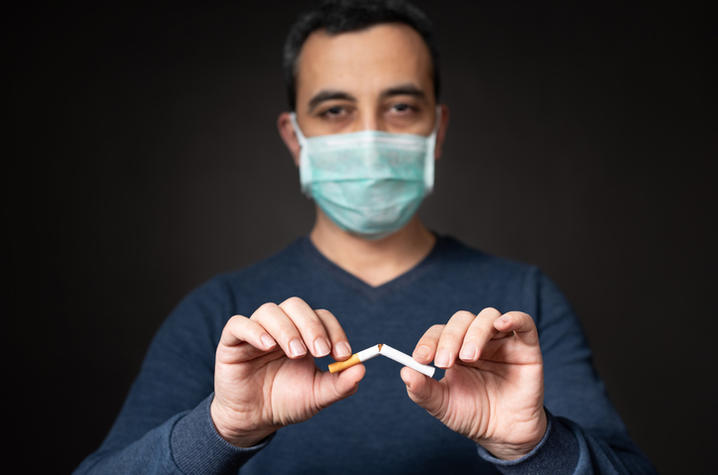Smoking, Vaping Increase Risk of COVID-19 Complications

The University of Kentucky Public Relations & Strategic Communications Office provides a weekly health column available for use and reprint by news media. This week's column is by Audrey Darville, a tobacco treatment specialist at the University of Kentucky.
LEXINGTON, Ky. (Aug. 10, 2020) — We now know more about the risks of smoking and COVID-19, though studies are still ongoing. Early reports found people sickened with the Coronavirus-19 (COVID-19) infection had more severe illness if they smoked.
A recent review of five published studies supports this finding: Persons who smoke have double the risk of severe infection compared to those who do not smoke.
We know that smoking and vaping:
- Cause damage to our lung’s natural defenses against invasive bacteria and viruses.
- Expose users to chemicals that weaken the immune system and limit the body’s ability to fight off infection.
- Increase the risk of heart and lung disease, conditions which also increase the risk of severe COVID-19 illness.
The actions of putting hand to mouth in smoking and vaping can increase the risk of exposure to bacteria and viruses. Smoking one pack a day results in around 300 hand-mouth contacts. Smoking and vaping also decrease mask-wearing time, limiting protection from virus exposure.
Support and medications, such as nicotine replacement products, can make the process of quitting tobacco products easier and success more likely as only four to five out of 100 people who try to quit on their own succeed. Talk to your healthcare provider, call the Tobacco Quitline (1-800-QUITNOW) or visit www.smokefree.gov for help.
As the state’s flagship, land-grant institution, the University of Kentucky exists to advance the Commonwealth. We do that by preparing the next generation of leaders — placing students at the heart of everything we do — and transforming the lives of Kentuckians through education, research and creative work, service and health care. We pride ourselves on being a catalyst for breakthroughs and a force for healing, a place where ingenuity unfolds. It's all made possible by our people — visionaries, disruptors and pioneers — who make up 200 academic programs, a $476.5 million research and development enterprise and a world-class medical center, all on one campus.




